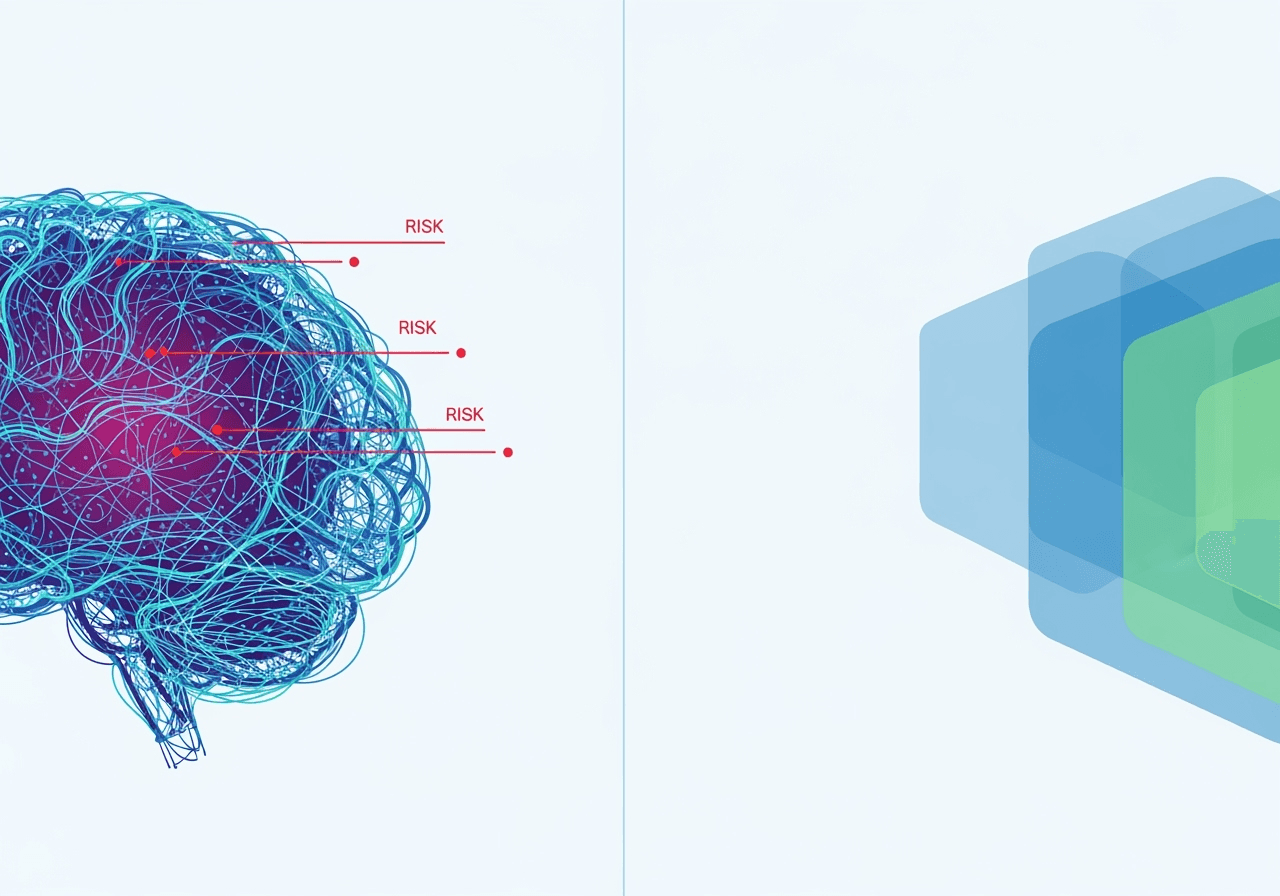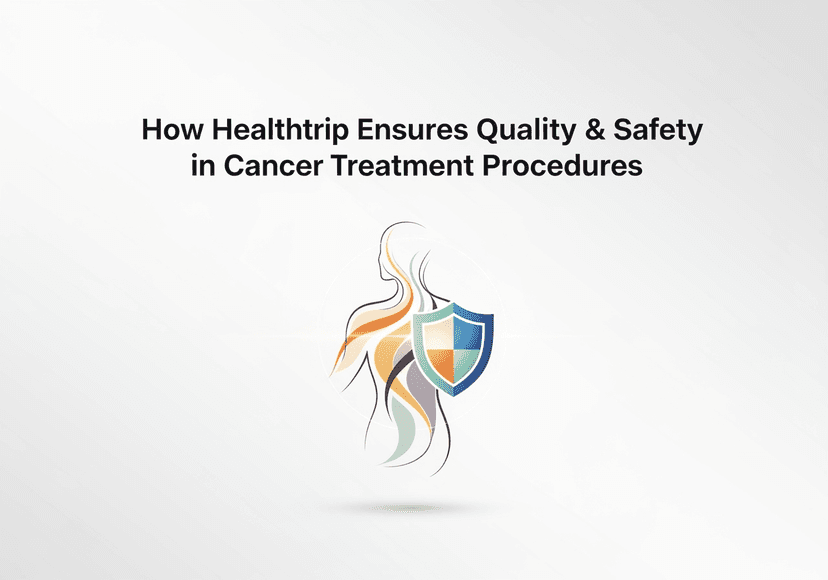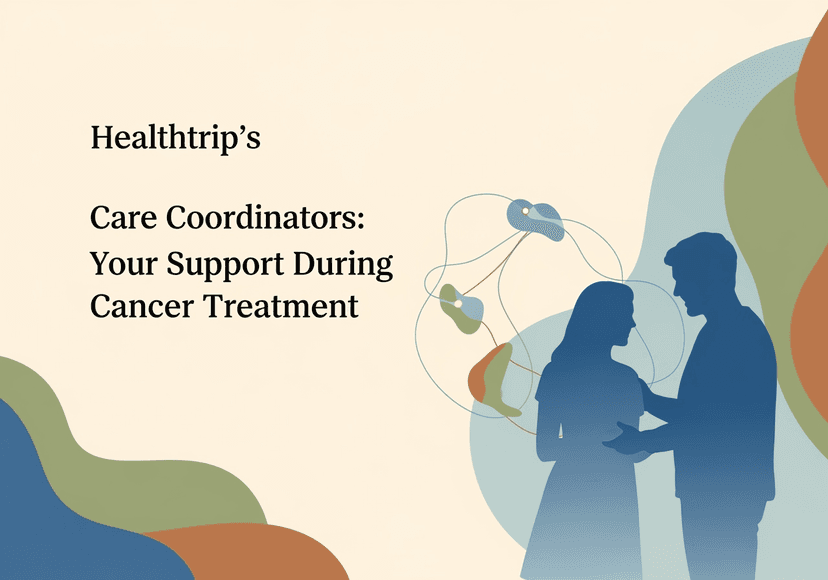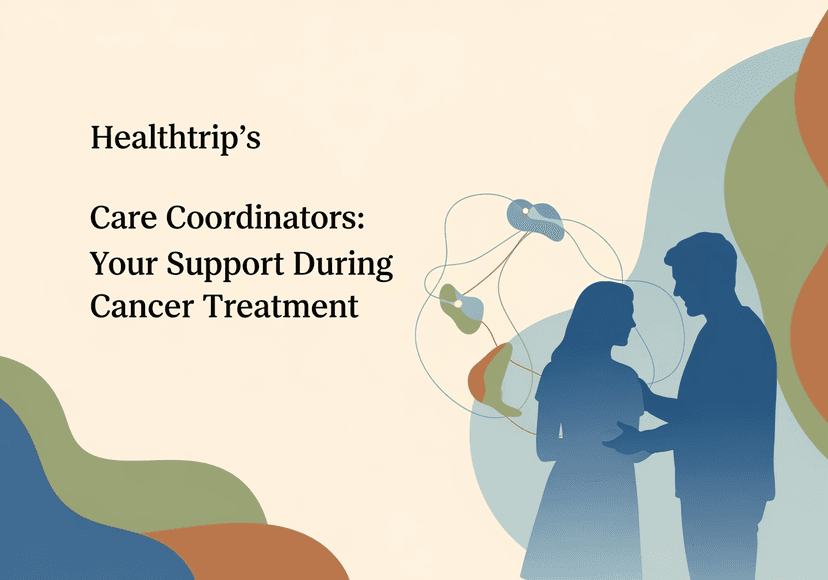
Common Risks in Neuro Surgery and How Healthtrip Manages Them
14 Oct, 2025
 Healthtrip
Healthtrip- Understanding Neurosurgery Risks: Where & Why They Arise
- Common Neurosurgical Complications: Who is at Risk and How They Manifest
- Infection Prevention Protocols at Healthtrip Partner Hospitals: Focus on Vejthani Hospital, Yanhee International Hospital, and Memorial Bahçelievler Hospital
- Managing Neurological Deficits: Healthtrip's Approach Including Rehabilitation at Fortis Shalimar Bagh.
- Addressing Bleeding Risks: Healthtrip's Strategies with Hisar Intercontinental Hospital
- Anesthesia-Related Complications: Mitigation Strategies at NMC Specialty Hospital, Al Nahda, Dubai
- Healthtrip's Commitment to Patient Safety: A Conclusion
Common Risks Associated with Neurosurgery
Neurosurgery, like any surgical procedure, comes with inherent risks, although advancements in technology and surgical techniques continuously minimize these. Infection is always a concern, as any surgical site can become vulnerable to bacteria. Bleeding, both during and after surgery, is another potential complication, particularly in delicate areas of the brain or spine. Other risks can include blood clots, adverse reactions to anesthesia, and nerve damage, which could lead to weakness, numbness, or pain. Specifically, neurological risks can involve cognitive changes, seizures, speech difficulties, or motor skill impairments, depending on the location of the surgery. While these risks sound daunting, it's important to remember that they are relatively rare and that neurosurgical teams are highly trained to prevent and manage them. Pre-operative assessments, meticulous surgical techniques, and post-operative care protocols are all designed to mitigate these potential complications. At Healthtrip, we prioritize connecting you with medical centers like LIV Hospital, Istanbul, that adhere to the highest standards of safety and use cutting-edge technologies to minimize these risks, ensuring you receive the best possible care.Most popular procedures in India
Infection Control Measures in Neurosurgery
Infection is a serious concern in any surgery, but particularly so in neurosurgery, given the brain's vulnerability. Therefore, stringent infection control measures are paramount. These protocols start well before the surgery itself. Patients undergo thorough pre-operative screening to identify and address any potential sources of infection. During the procedure, operating rooms are meticulously sterilized, advanced air filtration systems are employed, and the surgical team adheres to strict sterile techniques, including wearing specialized gowns and gloves. Prophylactic antibiotics are often administered before surgery to prevent bacterial growth. Post-operatively, vigilant wound care and monitoring for any signs of infection are crucial. At facilities like Fortis Hospital, Noida, infection control teams continuously monitor and refine protocols to ensure the lowest possible infection rates. They may use advanced techniques like intraoperative imaging to verify complete removal of infected tissue. Healthtrip understands the importance of these measures and ensures that the hospitals in our network, such as NMC Royal Hospital, DIP, Dubai, prioritize infection control to safeguard your health and well-being.Managing the Risk of Bleeding
Bleeding is a significant concern in neurosurgery due to the delicate nature of the brain and spinal cord. Surgeons meticulously plan procedures to minimize blood vessel damage, utilizing advanced imaging to visualize the surgical area. During surgery, meticulous techniques like microsurgery and endovascular procedures are employed to control bleeding. Various tools and techniques are used to cauterize blood vessels and minimize blood loss. Pre-operative assessment includes identifying patients at higher risk of bleeding due to medications or underlying conditions. Post-operative monitoring includes frequent neurological exams and imaging studies to detect any signs of bleeding. In case of post-operative bleeding, doctors often use medications to control the bleeding or do a surgical evacuation of blood clots. Healthtrip works with hospitals such as Vejthani Hospital to ensure that you have access to the best equipment and specialists for dealing with and managing bleedings during a neurosurgery.Wellness Treatments
Give yourself the time to relax
Lowest Prices Guaranteed!

Lowest Prices Guaranteed!
Addressing Neurological Deficits Post-Surgery
Despite the best surgical efforts, neurological deficits such as weakness, speech problems, or cognitive changes can sometimes occur after neurosurgery. These deficits often result from swelling, inflammation, or temporary disruption of blood flow to certain brain areas. Post-operative care focuses on minimizing these effects and promoting recovery. This includes medications to reduce swelling, physical therapy to improve strength and coordination, speech therapy to address language difficulties, and cognitive rehabilitation to enhance memory and thinking skills. Neuroplasticity, the brain's remarkable ability to rewire itself, plays a crucial role in recovery. Patients are encouraged to actively participate in rehabilitation programs to stimulate this process. Continuous monitoring and adjustments to the treatment plan are essential to optimize recovery. Healthtrip is able to connect you with hospitals such as Saudi German Hospital Cairo, Egypt that have comprehensive rehabilitation programs and experienced therapists to support you on your journey to regaining function and independence. At Healthtrip, we understand the importance of holistic care and are committed to connecting you with the resources you need for a successful recovery.Healthtrip's Role in Mitigating Neurosurgery Risks
Healthtrip plays a vital role in helping patients navigate the complexities of neurosurgery and minimize potential risks, one of the most important things being the connection with top doctors. We start by providing comprehensive information about different neurosurgical procedures, potential risks, and expected outcomes, empowering patients to make informed decisions. Our extensive network of hospitals, including Quironsalud Hospital Murcia, and neurosurgeons, are carefully vetted to ensure they meet the highest standards of safety and expertise. We facilitate communication between patients and medical teams, ensuring that all concerns are addressed and personalized treatment plans are developed, while helping you through the visa application process and medical assessments. Healthtrip also assists with travel arrangements, accommodation, and post-operative care, providing a seamless and stress-free experience. Our support continues even after you return home, with follow-up consultations and access to resources to aid in your recovery. By partnering with Healthtrip, patients can rest assured that they are receiving the best possible care, minimizing risks and maximizing their chances of a successful outcome. We also ensure transparent pricing and assist with insurance claims, removing financial barriers to accessing quality healthcare. < p>Understanding Neurosurgery Risks: Where & Why They Arise
Neurosurgery, like any surgical intervention, carries inherent risks. Understanding these risks is paramount for both patients and their families when considering such procedures. These risks arise from a complex interplay of factors, including the patient's overall health, the specific surgical technique employed, and the anatomical location of the surgery. For instance, a patient with pre-existing conditions like diabetes or heart disease may face a higher risk of complications during and after surgery. Similarly, surgeries performed in delicate areas of the brain or spine, such as those near critical nerves or blood vessels, inherently carry a greater potential for adverse events. It’s not just about the surgeon's skill, although that’s undeniably vital. It's also about the body's ability to heal and respond to the trauma of surgery. Pre-operative assessments, including detailed medical history reviews, physical examinations, and imaging studies, play a vital role in identifying and mitigating these risks. These assessments help surgeons tailor their approach to minimize potential complications, thereby enhancing patient safety and improving outcomes. Healthtrip emphasizes the importance of comprehensive pre-operative evaluations as a critical step in ensuring successful neurosurgical journeys for our patients.
Delving deeper into the "why" behind neurosurgery risks, consider the intricate nature of the human nervous system. The brain and spinal cord are incredibly complex structures, responsible for a vast array of functions, from motor control and sensation to cognition and emotion. Any disruption to these delicate tissues can potentially lead to a variety of neurological deficits. For example, damage to a specific area of the brain during surgery could result in weakness or paralysis on one side of the body, speech difficulties, or even changes in personality. Similarly, spinal cord surgery carries the risk of nerve damage, which could lead to pain, numbness, or loss of bowel or bladder control. Furthermore, the risk of infection is ever-present in any surgical setting. The brain and spinal cord are particularly vulnerable to infection, as the blood-brain barrier makes it difficult for antibiotics to reach these tissues. This is why stringent infection control protocols, like those implemented at Healthtrip partner hospitals, are so crucial in minimizing the risk of post-operative infections. We believe that armed with knowledge, patients can make informed decisions and approach neurosurgery with a greater sense of confidence and control.
Common Neurosurgical Complications: Who is at Risk and How They Manifest
Neurosurgical complications can range from relatively minor annoyances to severe, life-altering events. While the specific complications vary depending on the type of surgery and the individual patient, some common issues include infection, bleeding, blood clots, nerve damage, cerebrospinal fluid (CSF) leaks, and adverse reactions to anesthesia. Infection, as mentioned earlier, is a constant concern. It can manifest as a wound infection, meningitis (inflammation of the membranes surrounding the brain and spinal cord), or encephalitis (inflammation of the brain itself). Symptoms might include fever, headache, stiff neck, and altered mental status. Bleeding, both during and after surgery, is another potential complication. Significant bleeding can lead to increased pressure within the skull, potentially causing brain damage or stroke. Blood clots can also form in the legs or lungs, leading to serious complications like pulmonary embolism. Nerve damage is a risk in many neurosurgical procedures, especially those involving the spine. It can result in pain, numbness, weakness, or paralysis. CSF leaks, which occur when the fluid surrounding the brain and spinal cord leaks out through the surgical incision, can lead to headaches, nausea, and an increased risk of infection. The manifestations of these complications can vary widely, making prompt recognition and treatment crucial for positive patient outcomes. Healthtrip connects patients with hospitals equipped to handle these potential issues effectively.
Identifying who is most at risk for neurosurgical complications is a key aspect of pre-operative planning. Certain patient characteristics and medical conditions can significantly increase the likelihood of adverse events. Older adults, for example, tend to have a higher risk of complications due to age-related physiological changes and a greater prevalence of underlying health conditions. Patients with obesity, diabetes, high blood pressure, or heart disease are also at increased risk. Smokers and those with compromised immune systems are more susceptible to infections and poor wound healing. The type of neurosurgical procedure also plays a significant role in determining the risk profile. Complex surgeries involving multiple levels of the spine or deep brain structures carry a higher risk of complications compared to simpler, less invasive procedures. Furthermore, patients who have had previous neurosurgical procedures may be at increased risk due to scar tissue and altered anatomy. Healthtrip understands that each patient is unique and requires a personalized approach to risk assessment and management. We work closely with our partner hospitals and surgeons to ensure that all potential risk factors are carefully considered and addressed. This proactive approach helps to minimize the likelihood of complications and optimize patient outcomes. For comprehensive care, consider facilities like Memorial Bahçelievler Hospital, known for their commitment to patient safety.
Infection Prevention Protocols at Healthtrip Partner Hospitals: Focus on Vejthani Hospital, Yanhee International Hospital, and Memorial Bahçelievler Hospital
Infection prevention is a cornerstone of patient safety in neurosurgery, and Healthtrip partners with hospitals that adhere to the highest standards of infection control. Vejthani Hospital, Yanhee International Hospital, and Memorial Bahçelievler Hospital, are examples of institutions prioritized by Healthtrip. These hospitals employ comprehensive protocols designed to minimize the risk of surgical site infections and other healthcare-associated infections. These protocols encompass a multi-faceted approach, starting with meticulous pre-operative patient preparation. This includes ensuring that patients shower with antiseptic soap the night before surgery, and that the surgical site is thoroughly cleaned and disinfected immediately before the procedure. During surgery, strict sterile techniques are maintained by all members of the surgical team. This includes the use of sterile gowns, gloves, and instruments, as well as careful attention to airflow and ventilation in the operating room. Post-operatively, patients are closely monitored for signs of infection, such as fever, redness, swelling, or drainage at the surgical site. Antibiotics are administered prophylactically in certain cases to further reduce the risk of infection. The commitment of Vejthani Hospital, Yanhee International Hospital, and Memorial Bahçelievler Hospital to these protocols is a testament to their dedication to patient well-being.
Beyond these standard measures, hospitals like Vejthani Hospital, Yanhee International Hospital, and Memorial Bahçelievler Hospital often implement innovative strategies to further enhance infection control. This may include the use of advanced wound dressings that contain antimicrobial agents, as well as the implementation of electronic surveillance systems to track infection rates and identify potential outbreaks. They also heavily focus on staff education and training, ensuring that all healthcare professionals are well-versed in the latest infection prevention practices. Regular audits and inspections are conducted to ensure compliance with these protocols. Furthermore, these hospitals actively participate in research and quality improvement initiatives to continuously refine their infection control strategies. Healthtrip recognizes that infection prevention is an ongoing process that requires constant vigilance and innovation. By partnering with hospitals that prioritize infection control, we can provide our patients with the safest possible neurosurgical experience. Patients choosing Healthtrip can benefit from the robust infection control practices at institutions like Vejthani Hospital and Yanhee International Hospital, knowing their safety is a top priority and for facilities in Turkey, Memorial Bahçelievler Hospital is an excellent option. Consider Saudi German Hospital Cairo, Egypt for options in the middle east.
Also Read:
Managing Neurological Deficits: Healthtrip's Approach Including Rehabilitation at Fortis Shalimar Bagh.
Neurological deficits, which can manifest as weakness, sensory loss, speech difficulties, or cognitive impairments, are a significant concern following neurosurgery. Healthtrip recognizes that surgery is just one part of the journey, and a comprehensive rehabilitation program is crucial for optimizing patient recovery and quality of life. Our approach begins even before surgery, with a thorough pre-operative assessment to identify potential risk factors and establish a baseline of neurological function. This allows our multidisciplinary team, including neurosurgeons, neurologists, physiatrists, physical therapists, occupational therapists, and speech therapists, to develop a personalized rehabilitation plan tailored to each patient's specific needs. Post-operatively, we closely monitor patients for any emerging deficits and initiate rehabilitation as soon as medically stable. Our rehabilitation programs focus on restoring lost function, compensating for persistent deficits, and preventing secondary complications such as muscle contractures and pressure sores. We emphasize patient education and empowerment, providing individuals and their families with the knowledge and skills to actively participate in their recovery process. At Healthtrip, we understand that neurological recovery can be a long and challenging process, both physically and emotionally. We provide ongoing support and encouragement to help patients persevere and achieve their goals. We are allied with renowned rehabilitation centers, including Fortis Shalimar Bagh, to give our patients the best possible care. Fortis Shalimar Bagh offers advanced rehabilitation services, including robotic-assisted therapy, virtual reality rehabilitation, and specialized programs for stroke, spinal cord injury, and traumatic brain injury. The integration of these cutting-edge technologies with traditional rehabilitation techniques allows us to provide comprehensive and effective care for neurological deficits of all kinds. Healthtrip is committed to facilitating access to these world-class rehabilitation services, ensuring that our patients receive the support they need to regain their independence and return to a fulfilling life.
Also Read:
Addressing Bleeding Risks: Healthtrip's Strategies with Hisar Intercontinental Hospital
Bleeding, both during and after neurosurgery, is a serious complication that can lead to significant morbidity and mortality. Healthtrip takes a proactive and multi-faceted approach to minimize bleeding risks and ensure patient safety. This starts with a meticulous pre-operative assessment of each patient's bleeding risk, including a thorough review of their medical history, current medications, and coagulation studies. Patients taking antiplatelet or anticoagulant medications are carefully managed in consultation with their cardiologist or primary care physician to determine the safest course of action, which may involve temporarily discontinuing or bridging these medications. Intraoperatively, our neurosurgeons employ advanced surgical techniques, such as meticulous hemostasis and the use of specialized instruments, to minimize blood loss. We also utilize intraoperative cell salvage techniques, which collect and re-infuse a patient's own blood, reducing the need for allogeneic blood transfusions. Post-operatively, we closely monitor patients for signs of bleeding, such as changes in neurological status, vital signs, or wound drainage. We have established protocols for the prompt diagnosis and management of bleeding complications, including the use of imaging studies, blood transfusions, and surgical intervention if necessary. Healthtrip's commitment to minimizing bleeding risks extends to our partnerships with leading hospitals, such as Hisar Intercontinental Hospital. Hisar Intercontinental Hospital is equipped with state-of-the-art facilities and a highly skilled team of neurosurgeons, anesthesiologists, and nurses who are experienced in managing complex neurosurgical cases. The hospital also has a dedicated blood bank and transfusion service, ensuring that blood products are readily available when needed. At Healthtrip, we understand that bleeding risks can be a source of anxiety for patients and their families. We provide comprehensive pre-operative education to help patients understand the risks and benefits of neurosurgery, as well as the steps we take to minimize bleeding complications. We are committed to providing our patients with the safest and most effective neurosurgical care possible.
Also Read:
Anesthesia-Related Complications: Mitigation Strategies at NMC Specialty Hospital, Al Nahda, Dubai
Anesthesia plays a vital role in neurosurgery, allowing patients to undergo complex procedures without pain or awareness. However, anesthesia also carries inherent risks, and Healthtrip is committed to minimizing these risks through careful patient selection, advanced monitoring techniques, and close collaboration between our neurosurgeons and anesthesiologists. Pre-operatively, we conduct a thorough anesthesia risk assessment, taking into account each patient's medical history, current medications, and any pre-existing conditions that may increase their risk of complications. Patients with significant cardiac, pulmonary, or renal disease are carefully evaluated and optimized before surgery. Intraoperatively, we utilize advanced monitoring techniques, such as electroencephalography (EEG) and evoked potential monitoring, to assess brain function and ensure adequate cerebral perfusion. We also closely monitor patients' vital signs, including heart rate, blood pressure, oxygen saturation, and end-tidal carbon dioxide. Our anesthesiologists are skilled in managing a wide range of anesthesia-related complications, such as hypotension, hypertension, bradycardia, tachycardia, and respiratory depression. We have established protocols for the prompt recognition and treatment of these complications, ensuring that patients receive timely and effective care. Post-operatively, we closely monitor patients in the recovery room until they are fully awake and stable. We also provide pain management to ensure patient comfort and minimize the risk of post-operative complications. Healthtrip partners with leading hospitals like NMC Specialty Hospital, Al Nahda, Dubai, which are equipped with state-of-the-art anesthesia equipment and staffed by experienced anesthesiologists who are dedicated to providing the highest quality of care. NMC Specialty Hospital, Al Nahda, Dubai, has a dedicated team of anesthesiologists who specialize in neurosurgical anesthesia. They are experienced in managing complex cases and utilizing advanced monitoring techniques to ensure patient safety. At Healthtrip, we understand that anesthesia-related complications can be a source of concern for patients and their families. We provide comprehensive pre-operative education to help patients understand the risks and benefits of anesthesia, as well as the steps we take to minimize these risks. Our goal is to provide our patients with a safe and comfortable surgical experience.
Also Read:
Healthtrip's Commitment to Patient Safety: A Conclusion
At Healthtrip, patient safety is not just a priority, it is the foundation upon which our entire organization is built. From the initial consultation to post-operative care, every aspect of our process is designed to minimize risks and optimize patient outcomes. We achieve this through a combination of rigorous protocols, cutting-edge technology, and a dedicated team of medical professionals who are committed to providing the highest quality of care. Our commitment to patient safety is reflected in our partnerships with leading hospitals around the world, such as Hisar Intercontinental Hospital, Fortis Shalimar Bagh, NMC Specialty Hospital, Al Nahda, Dubai, Vejthani Hospital, Yanhee International Hospital, and Memorial Bahçelievler Hospital, each selected for their excellence in neurosurgical care and their unwavering dedication to patient safety. We continuously monitor our performance, track outcomes, and implement quality improvement initiatives to ensure that we are always striving to provide the safest and most effective care possible. We believe that patient safety is a shared responsibility, and we encourage patients and their families to actively participate in their care by asking questions, expressing concerns, and following our recommendations. At Healthtrip, we understand that undergoing neurosurgery can be a daunting experience. We are committed to providing our patients with the support, information, and resources they need to feel confident and empowered throughout their journey. Our dedicated team is available 24/7 to answer questions, address concerns, and provide assistance with every aspect of the process, from travel arrangements to post-operative care. When you choose Healthtrip, you can rest assured that you are in the hands of a team that is deeply committed to your safety, well-being, and successful recovery. We are here to guide you every step of the way, ensuring that you receive the best possible neurosurgical care in a safe and supportive environment. < /p>
Related Blogs

How Healthtrip Ensures Quality & Safety in Cancer Treatment Procedures
Detailed guide on cancer treatment, featuring doctors, hospitals, risks, recovery,

End-to-End Logistics for Cancer Treatment with Healthtrip's Support
Detailed guide on cancer treatment, featuring doctors, hospitals, risks, recovery,

Healthtrip's Care Coordinators: Your Support During Cancer Treatment
Detailed guide on cancer treatment, featuring doctors, hospitals, risks, recovery,

Healthtrip's Care Coordinators: Your Support During Cancer Treatment
Detailed guide on cancer treatment, featuring doctors, hospitals, risks, recovery,

Top 5 Indian Hospitals for Cancer Treatment
Detailed guide on cancer treatment, featuring doctors, hospitals, risks, recovery,

Post-Cancer Treatment Diet and Lifestyle Tips
Detailed guide on cancer treatment, featuring doctors, hospitals, risks, recovery,










